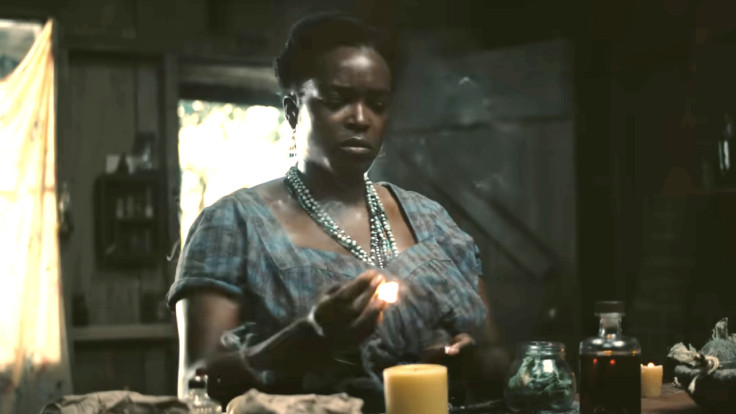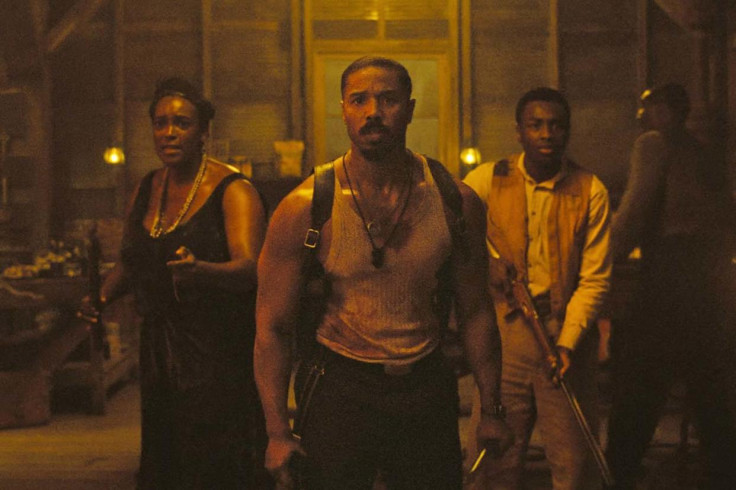
Ryan Coogler's Sinners is winning the hearts of audiences all over the world, and in a short amount of time, the supernatural drama has broken several box-office records. Starring Michael B Jordan, Hailee Steinfeld, Wunmi Mosaku and more promising actors, Sinners shows the side of history often missed in the mainstream cinema. By surrounding the narrative with vampires, violence and breathtaking visuals, the film also subtly shows the quiet, grounded power of Hoodoo magic.
Through the character of Annie, played with a gentle authority by Wunmi Mosaku, the film introduces viewers to a spiritual tradition that's often been pushed to the margins of American consciousness.
Hoodoo isn't just a narrative tool in Sinners. It's a character in its own right—mysterious, misunderstood, and deeply rooted in African American history. Coogler's film gives it life without sensationalism, showing its power not as fantasy, but as a survival trait lived by many Black communities in the American South.
Hoodoo as a Tool for Survival
Although based in West African religious beliefs and practices, in America, Hoodoo was born out of the trauma of slavery and cultural displacement. According to History experts, enslaved Africans brought their cosmologies, herbal knowledge, and spiritual practices with them across the Atlantic. Faced with the harsh reality of bondage, they adapted these traditions—blending them with Native American plant medicine and Christian scripture.
The result was Hoodoo: a practice designed not just to heal physical wounds, but to protect the spirit, reclaim agency, and offer hope when all other institutions failed. Basically it was a secret weapon within the community, for the community and by the community.

Unlike organised religion, Hoodoo was—and remains—intimate. It lives in kitchen cabinets, back gardens, and under mattresses. It's about relationships—with the land, the ancestors, and the unseen world. For enslaved people, who were often forbidden from practising African religions or reading the Bible, Hoodoo offered a path to personal and communal empowerment.
Annie's Magic and the Weight of Memory
In Sinners, Annie's Hoodoo practice is not presented as exotic or villainious, rather it's quiet and compassionate. She distributes herbs, performs protective rituals, and reminds others of their spiritual lineage. Even when mocked or dismissed as a 'witch,' Annie remains grounded in her purpose: keeping her community safe.
The film subtly suggests that her protection—especially of fellow characters Smoke and Stack( twin brother played by Jordan)—extends beyond the physical world. In one pivotal flashback, Annie insists her spells kept them safe during World War I and through their brushes with gang violence in Capone-era Chicago.
More than a plot device, Annie represents the real-life spiritual figures in African American communities—rootworkers, conjure women, two-head doctors—who held knowledge when doctors, pastors, or lawmen did not. These were the people others turned to when institutions turned their backs.
A Spiritual Lineage, Not a Sideshow
What Sinners gets right—and what makes it so vital—is how it repositions Hoodoo from the realm of 'black magic' into the realm of sacred tradition.

For African American communities, especially in the rural South, Hoodoo was a way to heal when doctors were too far, too expensive, or too racist. It was a way to call back power in a world designed to strip it away. As Dr. Yvonne Chireau, a scholar of African American religions and consultant on the film, notes: 'Hoodoo is about spiritual healing, protection, and ancestral connection.' Hoodoo takes inspiration from Christianity at a time when the Christian institution itself didn't accept them. A system often referred to as 'Jim Crow.'
There are no robes, temples, or formal liturgies in Hoodoo. Instead, there are candles, prayer, herbs, and intention. The Bible plays a surprisingly central role, especially the Psalms. Psalm 23, for example, is often recited for protection. In this way, Hoodoo practitioners took the tools of Christianity and made them their own, weaving them into a unique spiritual language.

Today, many modern African Americans are rediscovering their ancestral traditions, not as relics, but as resources.
In giving voice to this world through Annie, Coogler does more than entertain—he honours a sacred part of of the history and a lineage. He reminds us that magic, for many African Americans, has never been about fantasy. It's been about survival, justice, and love.







